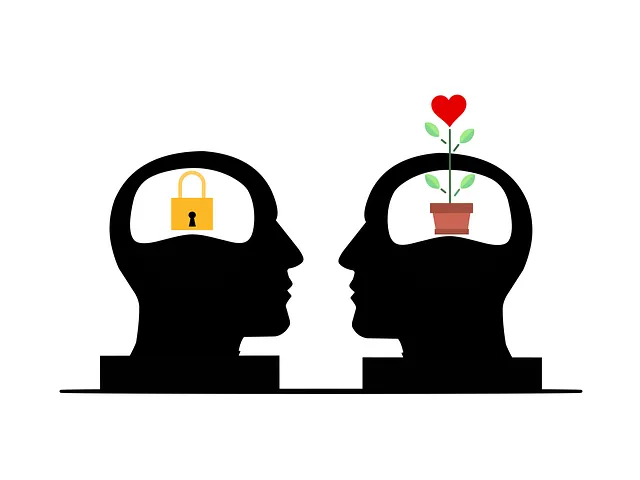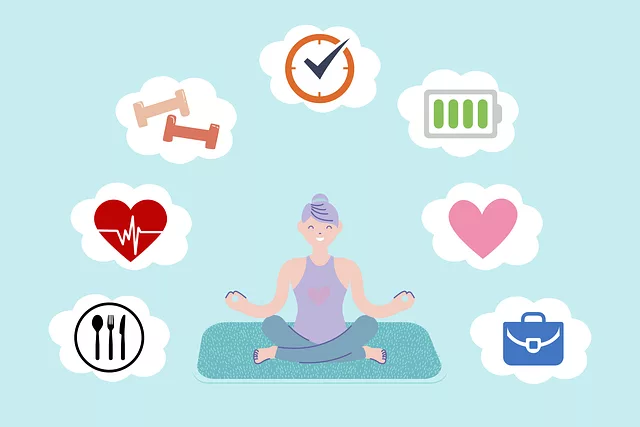The Kaiser Permanente Mental Health Appointment Center in Castle Rock highlights the importance of coping skills for maintaining mental wellness and preventing burnout, offering resources like individual therapy, group meetings, and workshops. They emphasize identifying personal stressors and triggers to develop effective coping mechanisms, focusing on resilience building, self-compassion, mindfulness, and positive self-talk. These evidence-based techniques enhance emotional well-being, improve relationships, and promote a fulfilling life, with long-term benefits for mental health outcomes.
In today’s fast-paced world, developing effective coping skills is essential for maintaining mental well-being. This article explores a comprehensive guide to coping skills development, focusing on strategies that can enhance resilience and promote better mental health. We delve into the foundational understanding of coping skills, highlighting the significant role played by institutions like the Kaiser Permanente Mental Health Appointment Center Castle Rock in fostering these skills. By identifying personal stressors and triggers, individuals can master techniques for effective coping, ultimately building long-term resilience.
- Understanding Coping Skills: A Foundation for Mental Well-being
- The Role of Kaiser Permanente Mental Health Appointment Center Castle Rock in Coping Skills Development
- Identifying Personal Stressors and Triggers
- Techniques for Effective Coping: Strategies to Implement
- Building Resilience: Long-term Coping Skills for Better Mental Health
Understanding Coping Skills: A Foundation for Mental Well-being

Coping skills are essential tools for maintaining mental wellness and preventing burnout. Understanding these skills is a crucial foundation, as they empower individuals to navigate life’s challenges with resilience and adaptability. At Kaiser Permanente Mental Health Appointment Center in Castle Rock, we recognize that developing effective coping strategies is integral to overall well-being.
Mental wellness encompasses not just the absence of mental illness but also one’s ability to cope with stress, regulate emotions, and maintain a sense of balance. Self-care routine development plays a pivotal role here, allowing individuals to proactively manage their mental health. By integrating healthy coping mechanisms into daily life, people can enhance their resilience and better handle stressful situations, thereby fostering improved mental wellness and reducing the risk of burnout.
The Role of Kaiser Permanente Mental Health Appointment Center Castle Rock in Coping Skills Development

The Kaiser Permanente Mental Health Appointment Center Castle Rock plays a pivotal role in promoting mental well-being and fostering coping skills development among healthcare providers. With a dedicated team of specialists, this center offers comprehensive support tailored to address the unique challenges faced by medical professionals. It provides a safe space for practitioners to discuss stress reduction methods, burnout prevention strategies for healthcare providers, and explore effective confidence-boosting techniques.
Through individual therapy sessions, group support meetings, and educational workshops, the center equips healthcare providers with valuable tools to navigate the high-pressure environment of their profession. By integrating evidence-based practices and fostering a culture of resilience, Kaiser Permanente’s Castle Rock appointment center enables medical professionals to enhance their coping abilities, improve job satisfaction, and ultimately provide better care for their patients.
Identifying Personal Stressors and Triggers

Identifying personal stressors and triggers is a crucial step in coping skills development, especially for healthcare providers navigating the demands of their profession. The Kaiser Permanente mental health appointment center in Castle Rock recognizes that burnout prevention strategies are essential to maintaining well-being. Healthcare workers often face unique challenges, from long shifts to high patient loads, which can contribute to increased stress levels and impact mood management.
By recognizing these triggers, professionals can proactively address potential issues. This may involve identifying specific situations or interactions that cause stress, such as dealing with difficult patients or administrative tasks. Once identified, individuals can develop strategies to manage or mitigate these stressors, enhancing their mental health awareness and overall resilience.
Techniques for Effective Coping: Strategies to Implement

When it comes to techniques for effective coping, individuals seeking support at Kaiser Permanente mental health appointment centers in Castle Rock have access to a range of evidence-based strategies. One powerful approach is inner strength development. Encouraging patients to cultivate resilience and self-compassion allows them to navigate challenges with greater ease. Techniques such as mindfulness meditation, deep breathing exercises, and positive self-talk can significantly reduce stress levels and enhance emotional well-being.
Additionally, integrating communication strategies into coping mechanisms is invaluable. Effective communication fosters understanding and strengthens relationships. For healthcare providers specifically, this includes developing active listening skills, expressing empathy, and openly discussing feelings. These practices not only improve patient interactions but also serve as powerful burnout prevention strategies. By incorporating these techniques into their daily lives, individuals can better cope with stress, promote mental health, and create a more fulfilling life.
Building Resilience: Long-term Coping Skills for Better Mental Health

Building resilience is a key aspect of long-term coping skills development that can significantly contribute to better mental health outcomes, as supported by resources from the Kaiser Permanente Mental Health Appointment Center in Castle Rock. Resilience equips individuals with the ability to adapt and bounce back from life’s challenges, fostering emotional healing processes that go beyond temporary fixes. This involves cultivating a mindset that embraces adversity as an opportunity for growth and learning, which aligns perfectly with the Mind Over Matter principles advocated by many mental health experts.
Public awareness campaigns development plays a crucial role in promoting these resilience-building practices. By sharing stories of triumph over adversity and highlighting effective coping strategies, such initiatives raise awareness about the importance of emotional healing processes. This not only empowers individuals to take proactive steps toward their mental well-being but also creates a supportive community where sharing experiences and learning from one another becomes the norm.
Coping skills development is a transformative journey towards enhanced mental well-being. By understanding the fundamentals outlined in this article, individuals can empower themselves to navigate life’s challenges effectively. The Kaiser Permanente Mental Health Appointment Center Castle Rock plays a pivotal role in this process by offering specialized support and resources. Through identifying personal stressors and triggers, learning proven coping techniques, and cultivating resilience, folks can revolutionize their mental health landscape. Remember that building these skills is an ongoing process, and with the right tools and mindset, anyone can thrive despite life’s ups and downs.






